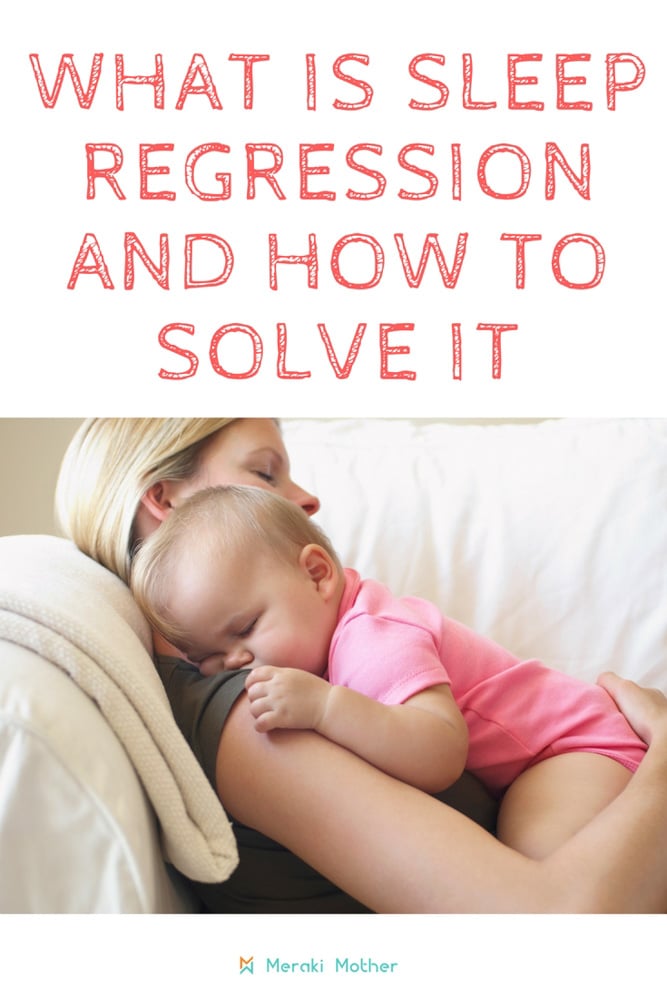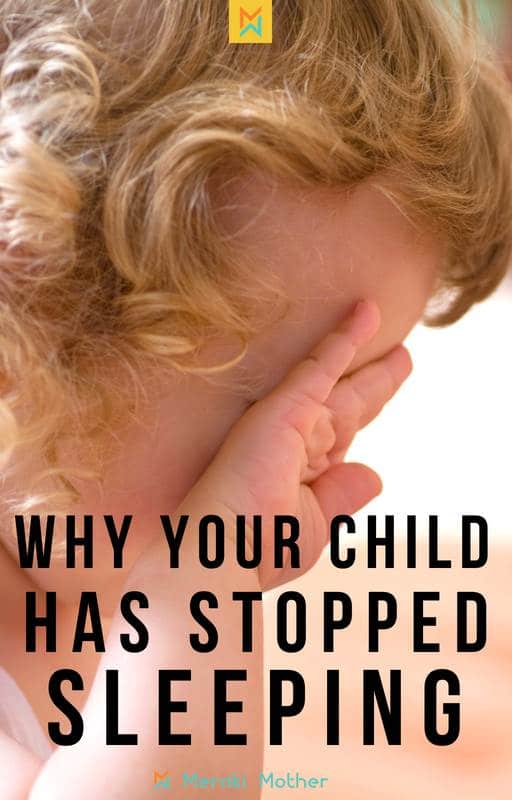Just when you think you have this parenting thing down pat and have achieved every parent’s dream, of a child that sleeps through the night…Sleep Regression hits. But what is sleeping regression actually?
It can be frustrating when your child is not sleeping through the night after previously having a great sleep routine. And as a tired parent, it can be a nightmare knowing how to handle it. Do you let them cry it out?
Even worse if your child screams at bedtime, causing a lot of anxiety for both you and your child.
If these sounds like problems you are having then keep reading as we help you discover what sleep regression is, signs that it may be happening, what ages babies go through sleep regression and how do both you and your child get through this stage.

Contents
What is Sleep Regression
What am I doing wrong?
Firstly, we want to let you know that sleep regression is a natural stage for some children. It’s no reflection on your parenting at all. Secondly, there are many other parents going through exactly the same sleepless nights.
You are not alone and you’ve got this!
Sleep regression is more than a toddler not sleeping through the night. It’s a stage when you baby or toddler who was once a sound sleeper throughout the night starts to develop a pattern of waking up at night, taking much shorter naps or missing them completely.
Older toddlers may fight sleep completely and your once peaceful nights are now full of the noise of your toddler crying at night. If there are dramatic changes in a baby’s sleep patterns then your child may be going through a sleep regression.

Signs of Sleep Regression
Although they can seem to come out of nowhere, there are a few things to look out for that are signs of sleep regression.
Maybe your baby who normally sleeps through the night is waking up frequently or your toddler wakes up every hour. Your 4-month-old bundle of joy now fusses constantly when its time for sleep or you have a toddler crying at bedtime and fighting sleep.
Any of these things can add up to a sign that your child is going through sleep regression. And whether its a toddler screaming at night or a toddler waking up early…it all leads to less sleep for you and your child.
If your child gets signs of unrest and difficulty sleeping that seem unusual it is important to check for illness or any allergies first. Things like earache or food sensitivities could be the cause.
Baby Sleep Regression Ages
Although all babies are unique there are some common ages when sleep regressions happen. Just bear in mind that your child may hit these stages earlier, later or not at all.
4 to 6 months
From 4 months you tiny bundle starts to step sleeping like a newborn and develops more adult sleeping patterns. Unfortunately, this can lead to shorter naps and babies that don’t sleep through the night anymore. The fact that your baby may have learned to roll at this stage and is also suddenly more aware of the world around them can also cause changes in sleep habits, like difficulty napping and problems transferring.
A great option at this age to wrapping is the Baby Merlin’s Magic Sleepsuit. A real savior when your little ones starts to move around too much and keeps coming out of their wrap.
8-10 months
If you think about what is happening in your little one’s world at this time it is not surprising they may be unsettled. During these months your baby is starting to become mobile, soaking in all the language around them and having huge brain development. It is also the time when some children will start to cut teeth which can lead to crying all night and fussing.
16-18months
We find this sleep regression stage can be one of the toughest. We are sure all parents hear “NO” all day from toddlers learning all about independence and self-awareness so it is logical that they carry this through to the evening which can lead to screams at bed time and refusing to nap.
It is also an age when some children become anxious when they are not near their parents. Separation anxiety at bedtime is a natural reflection of this stage.
2 years
The 2-year sleep regression can be a little tricky to define. The reason why some children won’t sleep can be obvious, maybe a lot is changing in their world? Potty training, moving from a crib to a bed and for a lot of toddlers, they could become a big brother or sister. It is also the age when children try to cut out naps.
Then add that a lot of toddlers can start to become fearful of night time. Monsters under the bed and scary shadows. They all lead to interpreted sleep patterns which can exhaust parents.
How Long Does Sleep Regression Last
Sleep progressions can last anywhere from 1 week to 6 weeks. And when you have a toddler not sleeping through the night anymore, this can seem like a long time.
How Much Sleep Does a Toddler Need
When you have a toddler not sleeping through the night or a toddler with sleep issues it can be worrying as a parent.
Although every child varies the average sleep a toddler needs is around 11 hours at night plus nap times. Less than this and you are going to end up with a cranky and tired little person.
When do toddlers stop napping?
As you toddler gets older they will naturally need less naps during the day time. A younger child may still need around 3 hours of nap time during the day while an older child will only need 1 hour. Remember that this will vary with each individual and also to what activities they have been doing that day.
A big key to how to get your toddler to sleep through the night is to make sure they keep up these important naps as they help to prevent over tiredness.
How to Get your Toddler to Sleep Through the Night
Knowing all the reasons why your little one doesn’t sleep doesn’t necessarily help you fix the problem though. Here are some activities and strategies that will get you settling your baby and help a toddler sleep through the night.
If you are going through one of the baby sleep regression stages you may decide to give your child more day and night feeds. It is not unusual for sleep regressions to be part and parcel of growth spurts. And just as a growth spurt passes so will the extra feeding.
Slowly help babies and toddlers break bad sleep associations. Although in your exhausted state it can be tempting to take the easiest option at the time, if your little one starts to associate this as normal behaviour you will just end up even more exhausted.
A big tip with sleep coaching is to develop habits you are happy to continue with. There is no judgement and everyone parents differently. If you enjoy laying with your child till they sleep then that is fine. If you only do it out of pure frustration and exhaustion, it does not fit in with your routine or other children then it is not the right path for you and you need to help your child self settle.
Do not revert back to habits you have broken, such as giving back a pacifier you managed to stop using one before the regression. The regression will eventually subside and you do not want to have to through a longer sleep issue with breaking bad habits formed during the regression.
Give lots of love and affection to your little one. Remember that they too are emotionally and physically exhausted. It may be a good idea to try and push bedtime a little earlier when your child is going through a sleep regression and to cut back on activities during the day which can all help combat overtiredness.
Final Words

Never be afraid to ask for help. Ask your partner to take over for a night or three. Ask a close friend or family member if they will watch the little one while you catch up on some sleep during the day or of they will help around the house.
And remember this is just a stage. Your little one will grow out of it and although the nights are long and exhausting now, it will pass.
PIN FOR LATER!






